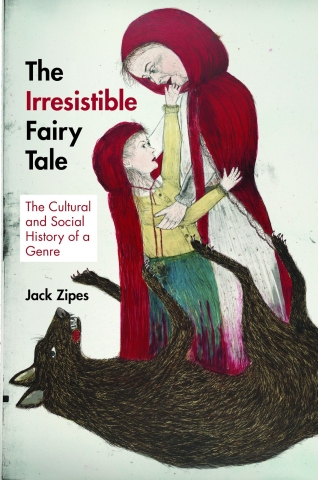- HOME
- INTRO TO THE FORUM
- USE AND MISUSE
- BADLY WRITTEN, BADLY SPOKEN
- GETTING
TO KNOW ENGLISH - PREPARING FOR ENGLISH PROFICIENCY TESTS
- GOING DEEPER INTO ENGLISH
- YOU ASKED ME THIS QUESTION
- ADVOCACIES
- EDUCATION AND TEACHING FORUM
- ADVICE AND DISSENT
- MY MEDIA ENGLISH WATCH
- STUDENTS' SOUNDING BOARD
- LANGUAGE HUMOR AT ITS FINEST
- THE LOUNGE
- NOTABLE WORKS BY OUR VERY OWN
- ESSAYS BY JOSE CARILLO
- Long Noun Forms Make Sentences Exasperatingly Difficult To Grasp
- Good Conversationalists Phrase Their Tag Questions With Finesse
- The Pronoun “None” Can Mean Either “Not One” Or “Not Any”
- A Rather Curious State Of Affairs In The Grammar Of “Do”-Questions
- Why I Consistently Use The Serial Comma
- Misuse Of “Lie” And “Lay” Punctures Many Writers’ Command Of English
- ABOUT JOSE CARILLO
- READINGS ABOUT LANGUAGE
- TIME OUT FROM ENGLISH GRAMMAR
- NEWS AND COMMENTARY
- BOOKSHOP
- ARCHIVES
Click here to recommend us!
TIME OUT FROM ENGLISH GRAMMAR
This section features wide-ranging, thought-provoking articles in English on any subject under the sun. Its objective is to present new, mind-changing ideas as well as to show to serious students of English how the various tools of the language can be felicitously harnessed to report a momentous or life-changing finding or event, to espouse or oppose an idea, or to express a deeply felt view about the world around us.
The outstanding English-language expositions to be featured here will mostly be presented through links to the websites that carry them. To put a particular work in better context, links to critiques, biographical sketches, and various other material about the author and his or her works will usually be also provided.
How to cope with the disconcerting flux in scientific knowledge
In an engaging and entertaining debut book, The Half-life of Facts: Why Everything We Know Has an Expiration Date (Penguin Group USA, 256 pages), Harvard mathematician Samuel Arbesman describes science as a “terribly human endeavor” that carries with it uncertainty and error, such that today’s scientific doctrine may well become tomorrow’s cautionary tale. He likens the evolution of knowledge to radioactive decay—how long an established fact can hold true cannot be precisely known, but how long it would take for half the facts in a discipline to become obsolete can be fairly predicted.

An expert in scientometrics (literarily the science of science), Arbesman broadly defines the new discipline as the quantifying and understanding of how science occurs. “That includes both the social aspects of science and the relationship between science and technology,” he explains. “There is a tight interplay between the capacities of our tools and what we can actually discover. Technology is crucial to the story of science. Science of science is about all these different things. And my book is about how the facts of the world—the stuff we know—grow in number, and how they change.”
Surveying a wide variety of fields of knowledge, Arbesman demonstrates that much of what we know consists of “mesofacts”—facts that change at a middle timescale, often over a single human lifetime. He offers several intriguing examples of these mesofacts, among them the legend of spinach’s nutritional power that grew from a German chemist’s misplaced decimal point about its iron content, the century-long public fascination with the brontosaurus that was shattered when it was demonstrated that the creature never really existed, and how two high-school students in the 1990s figured out a new proof of one of Euclid’s theorems that mathematicians over a thousand years concluded couldn’t be possibly done.
So what should we do in the face of this disconcerting flux in the body of scientific knowledge? Arbesman says that the correct response is to embrace rather than fight it: “Stop memorizing things… (for) memories can be outsourced to the cloud. Far better than learning facts is learning how to adapt to changing facts.”
Read “The half-life of facts,” an interview with Samuel Arbesman, in The Economist now!
Read David A. Shaywitz’s “The Scientific Blind Spot” in The Wall Street Journal now!
ABOUT THE AUTHOR:
Samuel Arbesman is an applied mathematician and network scientist. He is a senior scholar at the Kauffman Foundation and a fellow at the Institute for Quantitative Social Science at Harvard University. His writing has appeared in The New York Times, The Atlantic, Wired, New Scientist, and The Boston Globe.
ANOTHER INTERESTING READING:
In “Never-Neverland,” a review of Jack Zipes’s The Irresistible Fairy Tale: The Cultural and Social History of the Genre (Princeton University Press, 248 pages), Max Ross takes issue with the author’s contention that the fairy-tale genre has sufficient ballast to remain culturally relevant. Ross argues: “If, as Zipes asserts, the fairy tale was, and can still be, a means to engage the collective imagination and confront unpleasant social realities, then it seems following the genre’s incarnations into libraries and art galleries is a down-the-rabbit-hole endeavor, and an expert’s time might be better spent observing media with which people are more actively engaged.”

Read Max Ross’s “Never-Neverland” in the Open Letters Monthly website now!






